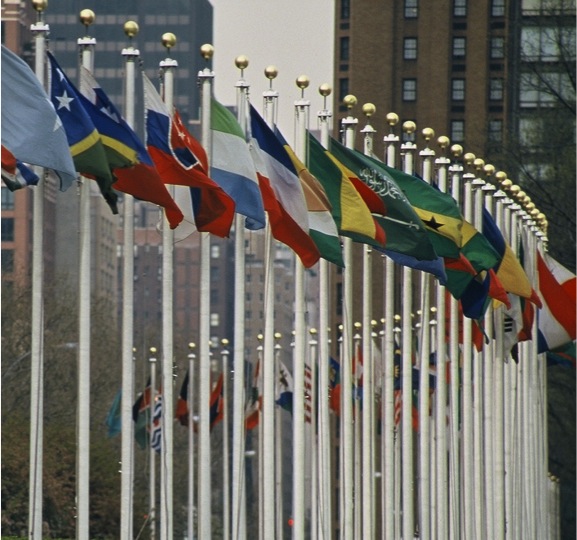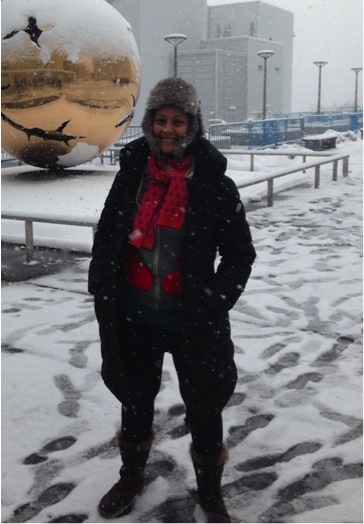-
Advocacy Theme
-
Tags
- Abortion
- Adoption
- Caregiving
- CEDAW
- Disability
- Domestic Violence
- Domestic Workers
- Harassment
- Healthcare
- Housing
- International/Regional Work
- Maintenance
- Media
- Migrant Spouses
- Migrant Workers
- Muslim Law
- National budget
- Parental Leave
- Parenthood
- Polygamy
- Population
- Race and religion
- Sexual Violence
- Sexuality Education
- Single Parents
- Social Support
- Sterilisation
- Women's Charter
AWARE goes to New York: the CSW (Part 1)
March 10th, 2015 | Gender-based Violence, News, Views
By Leigh Pasqual, Honorary Research Associate for AWARE
 This is the first part of a three-part series of posts about AWARE’s representation at an upcoming session of the Commission of the Status of Women (CSW) in New York. First up: what is the CSW, and why does it matter to gender equality in Singapore?
This is the first part of a three-part series of posts about AWARE’s representation at an upcoming session of the Commission of the Status of Women (CSW) in New York. First up: what is the CSW, and why does it matter to gender equality in Singapore?
What is the CSW?
The CSW is the main intergovernmental body dedicated to the promotion of gender equality and women’s empowerment. It was established in 1946 as a working commission of the United Nations (UN) Economic and Social Council.
Every year, the CSW holds a two-week session in March at UN Headquarters in New York, where representatives of member states, civil society groups and UN entities meet to discuss women’s rights around the world. They exchange experiences and best practices, and examine emerging issues.
The CSW focuses on one priority theme each year, based on the Beijing Declaration and Platform for Action (see below/or add link jump). In 2011, the theme was ‘access and participation of women and girls to education, training, science and technology’, while in 2013 the focus was on the ‘elimination and prevention of all forms of violence against women and girls’.
The CSW is a dynamic time for many advocates around the world who come to New York. We reconnect with colleagues and friends, expand knowledge, and form new partnerships. It is a time to celebrate and commemorate the important work of women’s movements to advance gender equality.
Read a brief history of the CSW – http://www.unwomen.org/en/csw/brief-history.
What is CSW 59?
From 9-20 March 2015, the CSW will hold its 59th session. It’s particularly important as it will review progress made in the implementation of the Beijing Declaration and Platform for Action, adopted 20 years ago at the Fourth World Conference on Women.
CSW 59 is also called Beijing +20, in recognition of this anniversary. There are no current plans for a Fifth World Conference.
At CSW 59, the UN Secretary-General will release an official report that presents the global review of progress on women’s empowerment, women’s rights and gender equality. The report includes inputs from 166 countries – including Singapore – and civil society.
Find out more about CSW 59 here. Read the Singapore Government’s report here
What is the Beijing Declaration and Platform for Action?
In 1995, the Fourth World Conference on Women in Beijing concluded with a landmark set of commitments by countries for achieving gender equality. These were spelled out in the Beijing Declaration and Platform for Action (BPfA).
The BPfA reaffirms the fundamental human rights of women and girls, and calls attention to ongoing violations of these rights in every part of the world. It puts forward an agenda to empower women and remove all obstacles to their active participation in all spheres of public and private life, through a full and equal share in economic, social, cultural and political decision-making. Twelve ‘critical areas of concern’ are spelled out, ranging from violence against women, unequal access to education and healthcare, the growing burden of poverty, to economic and political inequalities, and the impact of armed conflict on women and girls.
What is the connection between the CSW and CEDAW?
In 1963, efforts to consolidate standards on women’s rights led the UN General Assembly to request the CSW to draft a Declaration on the Elimination of Discrimination against Women.
The CSW was also translated the Declaration into a concrete framework to hold member states accountable for their actions to remove discrimination against women in their countries. This was the legally binding Convention on the Elimination of All Forms of Discrimination against Women (CEDAW), adopted in 1979. Singapore became a signatory in 1995.
Agreements and commitments made under the CSW are non-binding, but CEDAW legally obliges member states to take concrete steps to promote gender equality and women’s empowerment.
What is the UN Economic and Social Council?
The Economic and Social Council (ECOSOC) is one of the six main organs of the UN. It is the main body responsible for coordination, policy review, policy dialogue and recommendations on economic, social and environmental issues, as well as for implementation of the internationally agreed development goals.
ECOSOC also serves as the central mechanism for the activities of the United Nations system and its specialised agencies (such as UNICEF, UNDP and UN WOMEN), and supervises the subsidiary and expert bodies in the economic, social and environmental fields.
ECOSOC engages many stakeholders – policymakers, parliamentarians, academics, major groups, foundations, business sector representatives and registered non-governmental organisations. NGOs can participate in UN deliberations by obtaining ‘consultative status’ with ECOSOC, giving them access to many intergovernmental meetings of ECOSOC and its subsidiary bodies, and to the various human rights mechanisms of the UN.
What does AWARE have to do with ECOSOC and the CSW?
Singapore has signed CEDAW, the Convention on the Rights of the Child, and the Convention on the Rights of Persons with Disabilities.
In 2014, AWARE obtained ECOSOC consultative status. We applied for this because Singapore is expanding its international role, making it important for AWARE to contribute not only to national but also international discussions around women’s. With ECOSOC status, we are regularly invited to meetings at the UN, and can expand our role in these international dialogues, which also affect Singapore.
AWARE is already involved with CEDAW, primarily by submitting Shadow Reports (link) on the situation in Singapore. Participating at an international level helps us increase our knowledge of policies, laws and practices in other countries. The UN is an important hub for international standard-setting.
CSW 59 will be the first time that AWARE will participate at the CSW as an NGO with consultative status. This gives us the chance to attend official intergovernmental sessions. Although we did not succeed in securing a place to make an oral statement at the session itself, we will be publishing our planned oral statement on the AWARE website.
Stay tuned for Part 2: AWARE’s planned oral statement!

Leigh Pasqual is a writer, communications strategist, and women’s rights advocate. She has worked with the United Nations and with nonprofit organisations in the United States, Singapore and other countries. She continues to consult with organisations on a broad range of development issues, and is the founder of a non-profit organisation – Good for Girls – dedicated to empowering girls and supporting their education.



